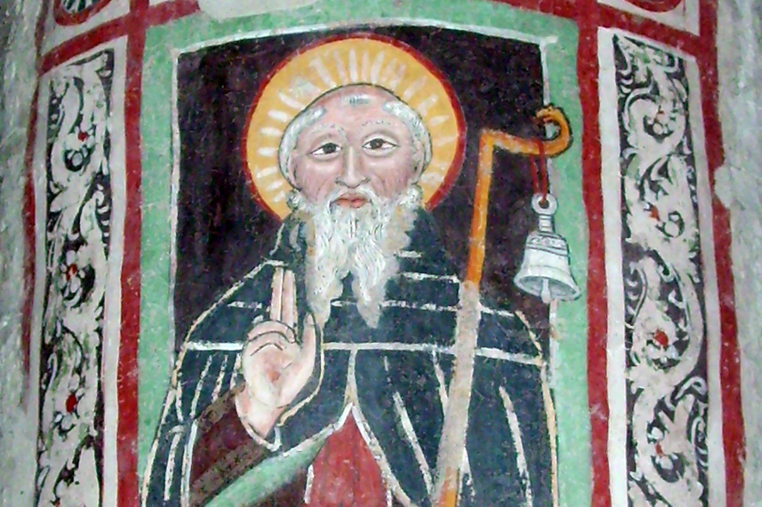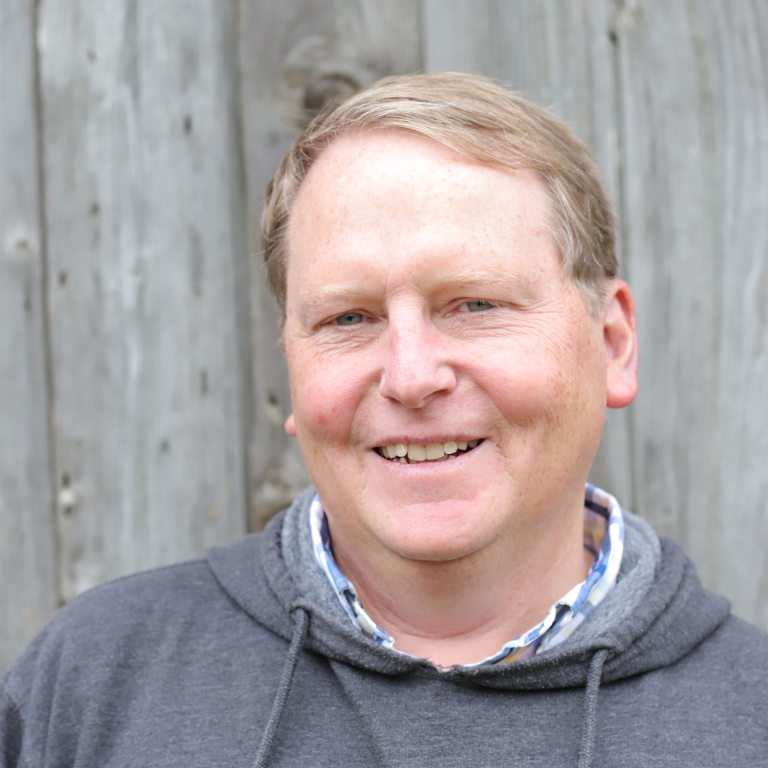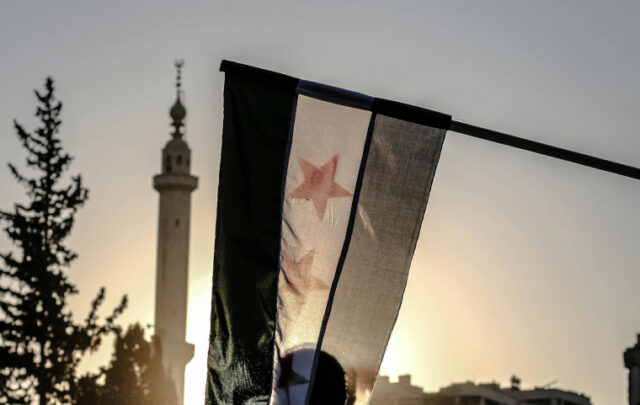Ed. note: Bill Vitek’s Armchair Philosophy blog will be a semi-regular feature on Resilience.org for the next few weeks/months. We hope you enjoy!
It may sound paradoxical, but philosophers have proved useful in times of collapse and rebuilding. Some of the greatest works in philosophy–at least in terms of their longevity and influence–were written in and during such times.1 (More on this below.) Alfred North Whitehead, one of those philosophers writing in the early 20th century, put it this way:
Systems, scientific and philosophic, come and go. Each method of understanding is at length exhausted. In its prime each system is a triumphant success: in its decay it is an obstructive nuisance. The transitions to new fruitfulness of understanding are achieved by recurrence to the utmost depths of intuition for the refreshment of imagination. In the end–though there is no end–what is being achieved, is width of view, issuing in greater opportunities. (Adventures Of Ideas, 1933, pg. 159)
The creation of this “width of view”–thanks to our Homo sapiens hardware–is open to most of us. The paragraphs below were written in response to a colleague’s question about how the COVID-19 pandemic helps us better understand climate change and the many other ongoing, cascading, planet-sized crises. I offer them, in part, because I don’t know what else to do in this Moment (as opposed to this moment), and because I wrote them while sitting in a chair. More importantly, they issue mostly from my experiences and observations, not from a particular method of analysis or formal system of logic. And it is my hope that they will inspire others with Whitehead’s optimism that the work of the imagination can issue-in greater opportunities.
How quickly the wheels of the global systems grind to a halt. There doesn’t seem to be any sort of downshifting available that doesn’t threaten to explode the gearbox. Or to use another metaphor, when the airspeed of a given airplane is insufficient to support the lift that makes it fly in the first place, it stalls. It doesn’t fly slower; it falls back to earth. When you build a system for speed (whether the speed of growth, information, profit, consumption), don’t expect to be able to slow it down without a crash of some kind.
How quickly, too, we become localists and regionalists. Forced to remain indoors or to stay close to home, everything slows down. I think of the dairy farmers and Amish communities in northern New York, where I lived for 32 years, and how little they traveled as they went about their everyday rhythms. They didn’t have the time or the interest, since everything that needed doing and that made sense to them was right where they were. In 1998 there was a significant ice storm in the Northeast that shut down large swaths of it for a few days to a few weeks. It turns out the Amish hardly noticed.2 They have an economy that can ride out downturns that are mostly peripheral to their lives, and perhaps because their economy is built for sufficiency and runs at the speed of the humans, horses and the seasons.
This pandemic does seem to have been exacerbated by a particular economic class: those with the means to travel for tourism and consumption, or who must travel because they work in a global economy. Even college students, primarily at private colleges and universities, are expected to travel abroad as part of their basic undergraduate education. The pandemic is putting these activities on hold and allowing for a kind of reassessment that would not likely have occurred otherwise.
There are at least two climate-change takeaways from the pandemic. First, a downturn–perhaps significant–in carbon consumption, and one that we will be able to measure easily because it will be dramatic. A pandemic, in other words, serves to cap carbon, at least for a time. Second, and less positive is the lesson that all the efforts to rationally change our climate trajectory in the last two decades do not seem to be as effective as is a pandemic that is only four months old. There is something to be learned from how quickly nations acted in unison, if not always collectively, and how individuals, states and nations more or less accepted rapid changes in their levels of freedom in spite of the predictions that these new limits could last a while. In the US it turns out our way of life is negotiable, despite what the first President Bush said at the 1992 Earth Summit in Rio de Janeiro.
Governments and institutions will respond as they know how, for better or for worse. Higher education, and maybe institutional education across the board, will no longer be the same, for better or for worse. As long as the internet holds we can stay connected to those we love at a distance. But a potential long-term outcome will be smaller units of human habitation. Like so many, my focus these days is on my grown kids (who live in three different states, none of them Vermont), my town neighbors, and my immediate family’s basic needs. It has been a sudden contraction in space, in other words. The pandemic is also creating a contraction of time, since I don’t even know how to think about a future beyond a month or so, or at least not coherently. It makes me wonder if there is a functional relationship between the complexity of social systems and their abilities to extend outward spatially and temporally: the greater the systemic complexity, the larger the space-time horizons for those who live in them. The collapse of these systems in terms of money, options, and freedoms also affect our space-time horizons. My 401K, for example, and how I think about being ‘retired,’ which is just another name for ‘unemployed.’ Or as Wes Jackson might say, our reliance on mostly cultural information keeps the space-time horizons smaller than relying mostly on high-energy information. Here’s what Lao Tzu said:
Tao Te Ching – Lao Tzu – chapter 80
A small country has fewer people.
Though there are machines that can work ten to a hundred times faster
than man, they are not needed.
The people take death seriously and do not travel far.
Though they have boats and carriages, no one uses them.
Though they have armor and weapons, no one displays them.
Men return to the knotting of rope in place of writing.
Their food is plain and good, their clothes fine but simple,
their homes secure;
They are happy in their ways.
Though they live within sight of their neighbors,
And crowing cocks and barking dogs are heard across the way,
Yet they leave each other in peace while they grow old and die.
As an amateur student of history I’ve been looking for the possible analogs to our current pandemic in the civilizational collapses and recoveries of the past. As a trained student of philosophy I have long believed that the best philosophy–in terms of longevity and influence–was produced in the space-time creases just-before and just-after a social-systemic-collapse: in the West, for example, with the Pre-Socratics (Thales, Pythagoras, Parmenides), the Greeks (Socrates, Plato, Aristotle), the Hellenists (the Stoics, Skeptics, Cynics, and Epicureans), and the 17th and 19th century thinkers in Europe and the US. And in the East as represented by the reform writings of Confucius, Lao Tzu and the Buddha, among many others. Many of these thinkers and schools of thought rejected the larger-horizon systems of their predecessors and focused instead on the immediate and the everyday. I suspect there were also smaller-scale systems developed around trade, economy, and social arrangements. Those Irish monks responding to the collapse of the Roman Empire are another example. They created a monastic system focused on labor (farming), the works of the mind (reading, literacy, meditation), and caring for others. Those monasteries and their rules of organization (The Rule of St. Benedict is one of just many examples) spread across Europe and created local and regional systems of economy, governance, education, food production, and mutual aid. Whether or not they “saved civilization,” they can certainly be given credit for transforming it. A more recent author, Peter Maurin, writing in the 1930s, calls for a similar project he calls Schools of Social Studies. Maurin was writing from the Catholic Social Teaching tradition, but his ideas have been considered applicable to a more secular society.
There is a lot of good scholarly work on how such collapses and responses to collapses occur; and a long A-Z list of organizations, plans, and ‘how to’ books to prepare and survive. But we might wonder, and with good cause, if the pandemic has come too soon for the preparations to do much good. Or, more optimistically, that the current pandemic is a preview for what’s to come–as some are predicting that the coming fall and winter months will produce an explosion of the virus)–and that we still have time to get ready if we marshal our energies and focus. Or, more dismally, that all our planning comes to naught (or most of it anyway) when the mostly invisible substructures holding us and our way of life up give way in one sudden motion, and when all that what we can rely on in that moment is what we have on hand and already know how to do. A good friend survived a fall through the ice while crossing a river because he brought a canoe paddle with him, holding it over his head as he crossed; and because he paused briefly in the water to think of the best approach out of the hole. (He is a retired professor of mechanical engineering and a remarkably handy person. He always required students in his engineering design courses to have at least two designs in mind). When his first escape approach didn’t work, he tried another. He made it out and survived because of what he already knew (how to think through a problem), and because he planned ahead (the paddle). He probably had a bit of luck on his side, too, and he certainly survived the aftermath due to the kindness of others, in this case his wife, who got him to shore and in front of a blazing wood stove.
It’s hard to take much comfort in our collective cultural and institutional experience with thinking through the kind of pandemic we now confront. Nor do we seem to have anything as valuable and practical as a paddle with which to leverage our movement out of the hole we’ve fallen into. Luck? It’s too fickle to count on. In the meantime, I’m simply trying to be a better and more practiced person at offering kindness to others.
Endnotes
1 St. Augustine, 354-430, is famously described as sitting at his desk and writing as the invaders that
would destroy his community were breaching the walls. His works survived and helped shape the
societies of those who came after him.
2 The Grid and the Village: Losing Electricity, Finding Community
Teaser photo credit: By Davide Papalini, CC BY-SA 3.0






